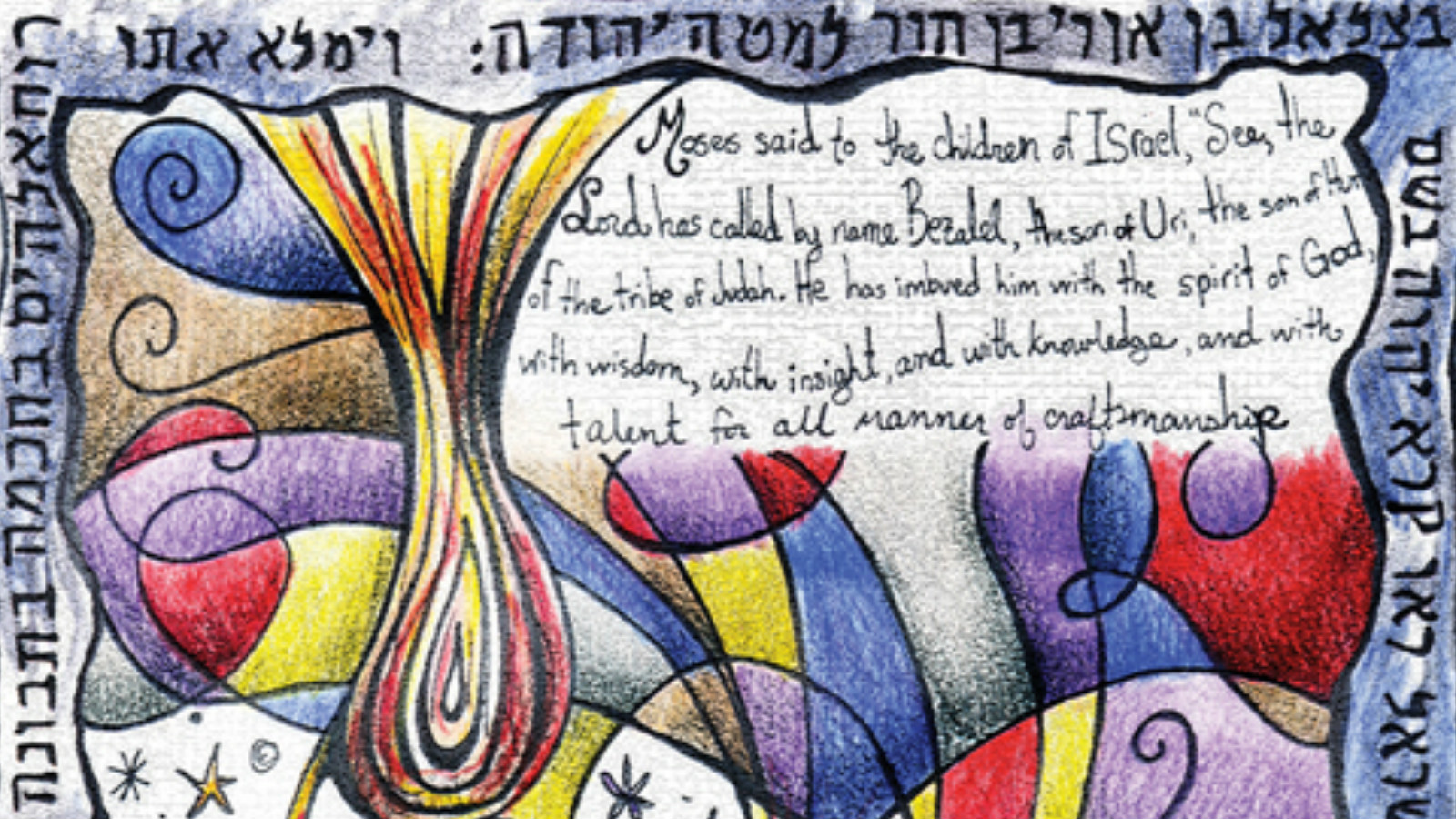Next Reading
Torah Reading
Exodus 35:1 - 40:38
Haftarah
Ezekiel 45:16 - 46:18 | Shabbat HaChodesh
In the Torah portion Vayakhel, God commands the Israelites not to do any work in the sanctuary on Shabbat. The Israelites gather gifts for God. Moses says that Ohaliab and Bezalel should take the gifts of the Israelites and build God’s Sanctuary. In Pekudei, Aaron and the priests are given their clothing for work in the Sanctuary. This marks the completion of the Tabernacle construction. Moses anoints Aaron and his sons to make their priestly positions official. A cloud descends upon the Tent of Meeting, and God’s presence fills the Tabernacle.
Featured Commentary
Parashat Vayakhel-Pekudei: Our Bodies, Our Holiness
This Torah portion teaches that holiness is not meant to suppress our physicality, but to elevate it.

